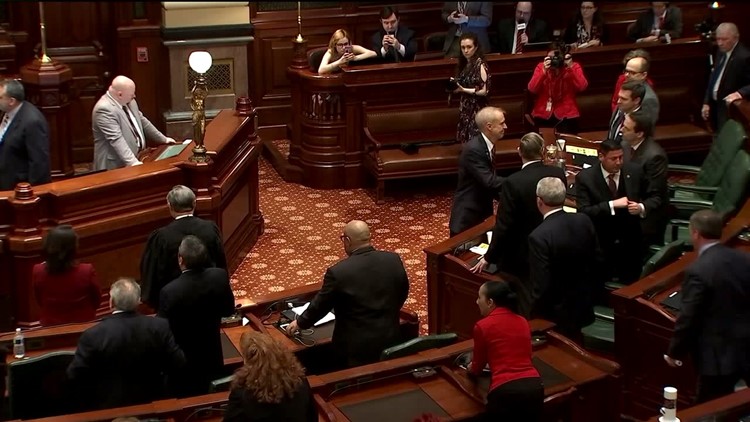SPRINGFIELD-- Illinois Governor Bruce Rauner says the state’s Income tax hike has got to go.
During his annual State Budget Address, Rauner called for pension reform and cuts to health care cost.
" we have to change the way we manage pension cost and group health expenses if we don’t our finances will continue to deteriorate."
The 32 percent tax increase put in place last year is worth $5 billion.
Illinois still has about 9 billion in unpaid bills.
Under the governor’s proposed budget, state funded entities like local school districts will have to start paying into their own pensions, a shift Rauner says will take at least four years to implement.
“The plan will ask schools to pay 25 percent increments per year.
“We will ask universities to pay their pension costs --also phased in over four years; and to pick up their health care costs, with offset tools that include an additional $205 million in appropriations in fiscal year 2019,” says Rauner.
Local school districts, Rauner says can offset the cost by using revenue from the increased education formula. He also called on the General Assembly to give local governments the tools to cut cost, enabling them to consolidate.
Lawmakers on both side of the aisle say that is not the answer.
“Moving the dollars from one payer to another is really not reforming anything in my opinion,” says Representative Tony McCombie.
“Any of that money that they receive is now going to go towards paying pension cost locally and not going to be going to educate our children,” says Representative Halpin.
If the changes are made, Rauner says the state would be able to enact a nearly $1 billion tax cut to tax payers and start rolling back the income tax rate.
The governor also called on the General Assembly to sell the Thompson Center in Chicago, and a reduction of worker compensation insurance rates.
“(those rates) are the highest in the Midwest, and they are pushing out our manufacturers. Business leaves the state to escape them or won’t come to avoid them. It’s one of the reasons we are losing business and population to states on our border,” says Rauner.
The General Assembly has until May 31 to pass a balanced budget with a majority vote.



